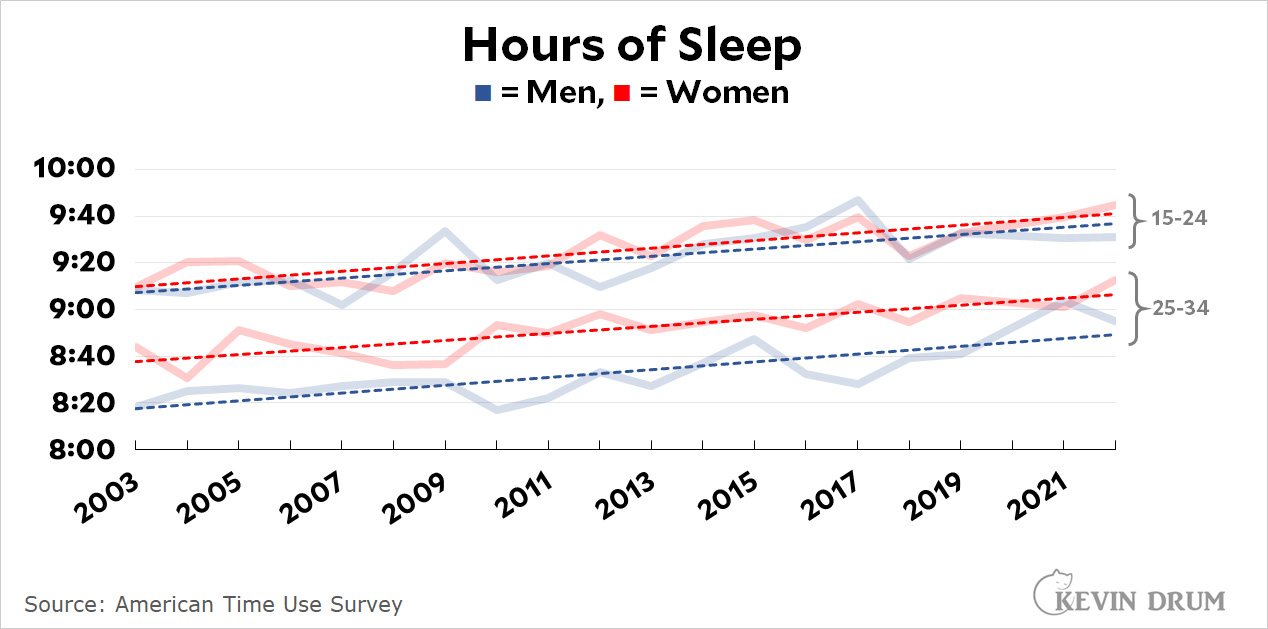Caitlan Flanagan has an odd piece in the Atlantic today asserting that American university professors are no longer interested in presenting both sides of controversial issues—and I use the word assert advisedly here. The piece is odd because she presents literally no evidence for her argument even though she's written a whole book on the subject.
What really struck me, though, is that Flanagan's essay turns on a lesson from her father, who would listen to her youthful harangues and then quietly ask her, "And what is the best argument of the other side?"
I had learned the style and the rhetorical turns of making a great case, but I didn’t know the first thing about fortifying it with facts, reason, logic—or the best argument of the side I was treating in such a cavalier way.
This is a very strange takeaway. My guess is that her father was asking her to at least consider the possibility that she was wrong. But she took away something different: she just needed to learn to argue better. This doesn't strike me as a great look from someone who's urging students to think for themselves more effectively.
But long as we're on the subject, I have a similar story. Like Flanagan, my father was a university professor, and when I was in the 8th grade I was assigned to write a report on the Taft-Hartley Act.
(Why? God only knows.)
So I found a book, read it, and began writing. But one night I was regaling my father with the greatness of Taft-Hartley and he pulled me up short. "Well, that's what the proponents say," he said.¹ It hadn't occurred to me that the book might be biased. It was a book! And anyway, Taft-Hartley was a law, and aren't laws good?
This might seem fairly obvious to us adults, but it's surprisingly common for us adults to ignore it anyway and believe whatever we hear. But my father's implicit advice has stuck with me since I was 14. To this day, practically the first thing I ask when I read something is, "Does this guy have an axe to grind?" Almost all of us do, after all, and it's dauntingly hard to figure this out if you're reading or listening to a skilled arguer. This is because only doltish propagandists outright lie. The good ones make their case by what they leave out, and unless you're an expert yourself it's all but impossible to know what you aren't being told.
So there you have it: good advice from two fathers. I'll close with another piece of good advice, this time from Flanagan herself:
You don’t have to delve into the arcana of the Third Reich to destroy anyone making a case for it. But these layups rarely present themselves in decent places. Most of the time, the subjects we talk about are—for all of their flattening by cable news and internet wormholes and all the rest of it—extremely complicated.
Yep. For any subject interesting enough to matter, both sides will have some good arguments. I mean, what are the odds that your side literally has a monopoly on good points? The world is just too complicated for that.
¹Needless to say, Dad was old enough to have been an adult when Taft-Hartley was passed in 1948. He was keenly aware that it had been very, very controversial.
 Average hours of work per week fell sharply in January. It's now lower than it's been since the Great Recession with the exception of a single month at the start of the pandemic.
Average hours of work per week fell sharply in January. It's now lower than it's been since the Great Recession with the exception of a single month at the start of the pandemic. Average weekly hours were actually down to 33.7, but the seasonal adjustment raised it 0.4 hours to to 34.1. Sure enough, the average change from December to January has been -0.4 hours over the past ten years:
Average weekly hours were actually down to 33.7, but the seasonal adjustment raised it 0.4 hours to to 34.1. Sure enough, the average change from December to January has been -0.4 hours over the past ten years: Since average hours worked routinely drops by 0.4 hours per week in January, that gets backed out to produce a "true" seasonally-adjusted look at things.
Since average hours worked routinely drops by 0.4 hours per week in January, that gets backed out to produce a "true" seasonally-adjusted look at things.



